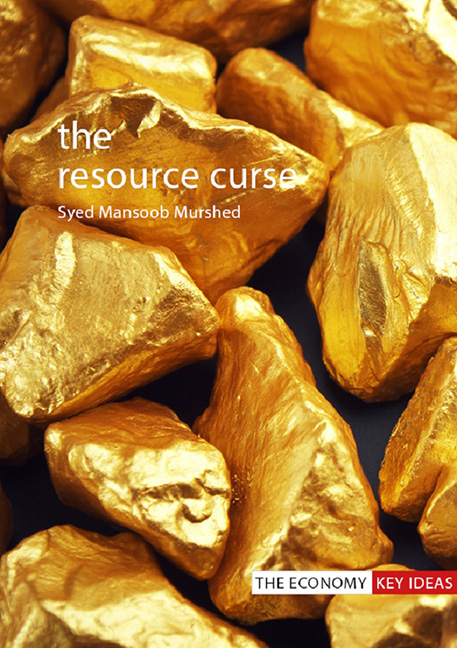Book contents
- Frontmatter
- Dedication
- Contents
- Acknowledgements
- 1 Introduction: explaining the resource curse
- 2 The Dutch disease and deindustrialization
- 3 Growth and the institutional resource curse
- 4 Empirical evidence on the resource curse
- 5 Resource rents and violent internal conflict
- 6 Managing resource rents
- 7 Concluding comments
- Appendix 1 Growth collapse with rent-seeking
- Appendix 2 A model of civil war with greed and grievances
- References
- Index
1 - Introduction: explaining the resource curse
Published online by Cambridge University Press: 09 August 2023
- Frontmatter
- Dedication
- Contents
- Acknowledgements
- 1 Introduction: explaining the resource curse
- 2 The Dutch disease and deindustrialization
- 3 Growth and the institutional resource curse
- 4 Empirical evidence on the resource curse
- 5 Resource rents and violent internal conflict
- 6 Managing resource rents
- 7 Concluding comments
- Appendix 1 Growth collapse with rent-seeking
- Appendix 2 A model of civil war with greed and grievances
- References
- Index
Summary
How could nature’s boaunty turn into a curse? It strains credulity to think that environmental gifts such as land, water, forests, minerals and fuels could become a curse for nations or peoples richly endowed with them. Yet the term “resource” or “natural resource curse” (see Auty 1993 for an early use of the expression) has gained currency in the last quarter of a century among economists and social scientists. Some have argued that the scepticism with which natural resource endowments are viewed harks back to Adam Smith (see Lederman & Maloney 2007). It refers to the stylized fact that developing countries richly endowed with, or heavily dependent on, natural-resource-based economic activities on the whole consistently underperform compared to resource- “poor” developing countries. Among the many examples cited to support this claim are comparisons between resource-poor countries in East Asia, such as South Korea, and oil-rich African or Latin American states, such as Nigeria or Venezuela. Economies in the latter group performed poorly in the last quarter of the twentieth century.
Is this poor performance due to the countries’ natural resource status? The 1980s and 1990s were lost decades for sub-Saharan African economies, as were the 1980s for the Latin American region (see Table 1.1), and, therefore, other regional or neighbourhood factors could also be at work. Table 1.1 shows that more recently, after 2000, developing country growth was robust in nearly all regions and countries, and there was also a commodity price boom that has just ended. Thus, evidence for the deleterious economic effects of the resource curse may have become weaker.
The economic misfortunes that beset resource-rich developing economies in contrast to their relatively resource-poor counterparts appears to be a phenomenon that began to be highlighted during the latter part of the twentieth century, particularly during the last two decades. This is, in no small degree, attributable to the extraordinary economic success achieved by certain resource-poor East Asian countries such as South Korea, whose average standard of living has caught up with richer industrialized countries, in contrast to the relative decline in resourcerich Latin America and Africa.
- Type
- Chapter
- Information
- The Resource Curse , pp. 1 - 10Publisher: Agenda PublishingPrint publication year: 2018



